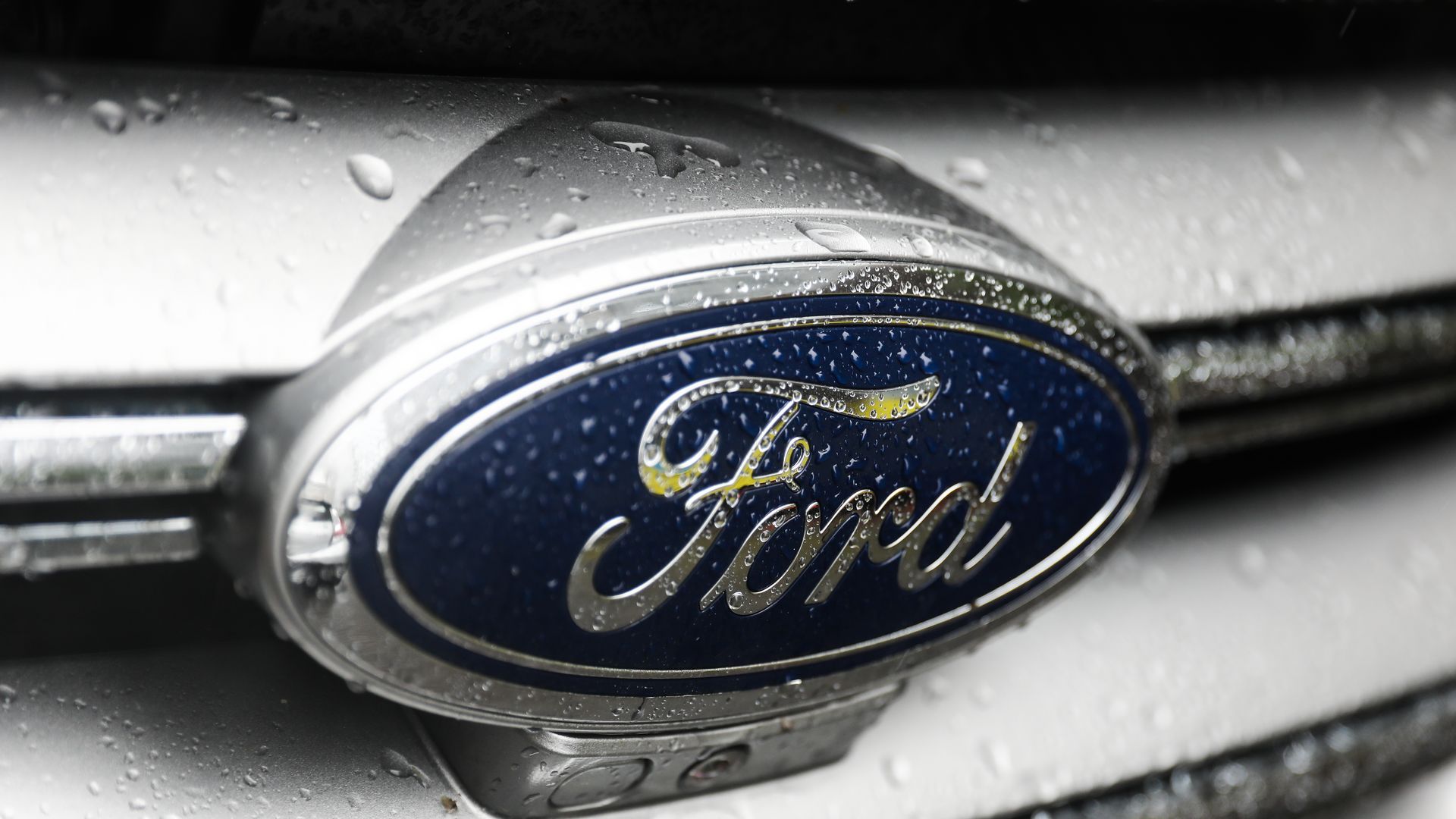
Photo: Jakub Porzycki/NurPhoto via Getty Images
House Republicans are considering hauling Ford before Congress to talk about EVs and a deal with a Chinese battery firm.
- Why it matters: Republicans are using Ford to make a public argument that boosting EVs helps China at American workers' expense — creating another headache for the company on top of the auto workers' strike.
- The move could backfire on the GOP, though, especially if its anti-China bent hurts investor confidence in manufacturing or comes across as xenophobic.
Driving the news: Rep. Cathy McMorris Rodgers, chair of the House Energy and Commerce Committee, told Axios last week she wants Ford to come testify "when the time is right."
- Rodgers wrote Ford in early September asking for information on a planned Michigan factory that would make EV batteries with tech licensed from CATL, a Chinese company.
- Rep. Morgan Griffith, chair of the oversight subcommittee, said Republicans are awaiting a response from Ford before determining next steps. He wants to bring the company in "if we don't get proper responses."
Between the lines: The Ford-CATL deal is a lightning rod for Republican angst over Chinese businesses and unsatisfied desires for the U.S. to "decouple" from China.
- After Ford announced Michigan would be getting the plant, two other House committees — and Sen. Joe Manchin — have since criticized the plan.
- Yesterday, Ford said it paused construction on the project while saying it hasn't made a final decision on moving forward, frustrating the striking auto workers.
Reality check: Ford has told the Hill that by working with CATL, it lets the carmaker make batteries in the U.S. that don't need key minerals controlled overseas, according to a company fact sheet circulating around the Capitol.
- A sheet, which was obtained by Axios, explained the plant will make a specific type of EV battery — LFP — that is not produced en masse in the U.S.
- LFP batteries do not need cobalt or nickel, two commodities with markets heavily influenced by China.
- "Other automakers are exclusively importing their LFP batteries, effectively giving away these good-paying, high-tech jobs to other nations and increasing America's reliance on foreign materials," the fact sheet reads.
- "Ford, on the other hand, has chosen to build these batteries and vehicles here. With American workers."
What they're saying: Ford has its defenders — like Rep. Haley Stevens, who told Axios she was "excited about this deal."
- "We need to not be finger-pointing right now. I find a lot of this overblown," Stevens told Jael just off the House steps.
- Ford spokesperson Melissa Miller said the company has provided a response to the Energy and Commerce Committee "including correcting misinformation" about the Michigan project "and Ford's efforts to bring manufacturing home to the U.S."
- Asked if the company would testify, Miller said: "We're already explaining to members of Congress our plans to strengthen American EV and battery manufacturing and clearing up the misinformation about the project."
The big picture: As we explained over the summer, anti-China politics will force companies and politicians to choose between their climate efforts and placating security hawks.
What we're watching: Language in the House energy and water approps bill that could force companies off of China ties to get DOE funding.
